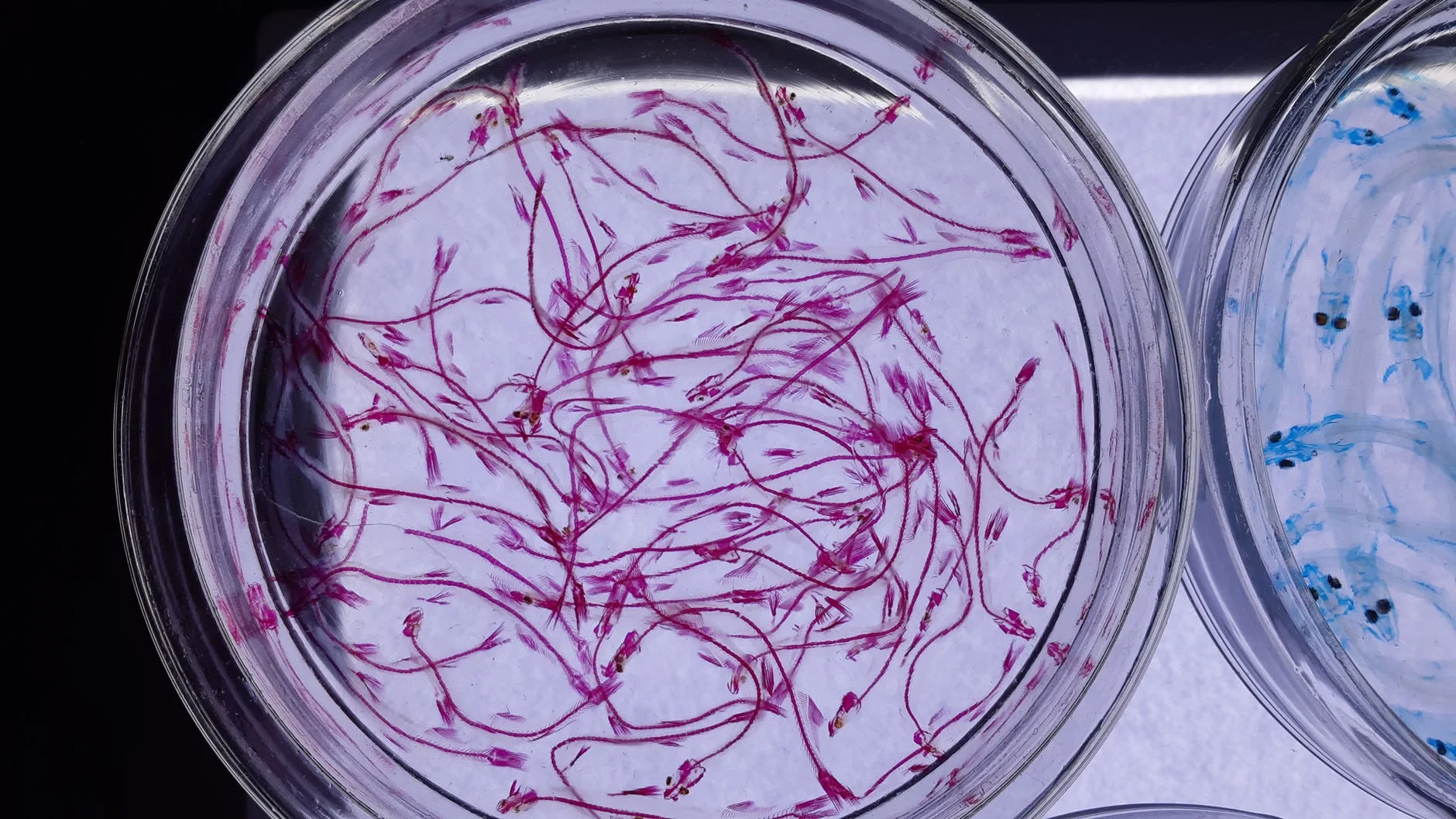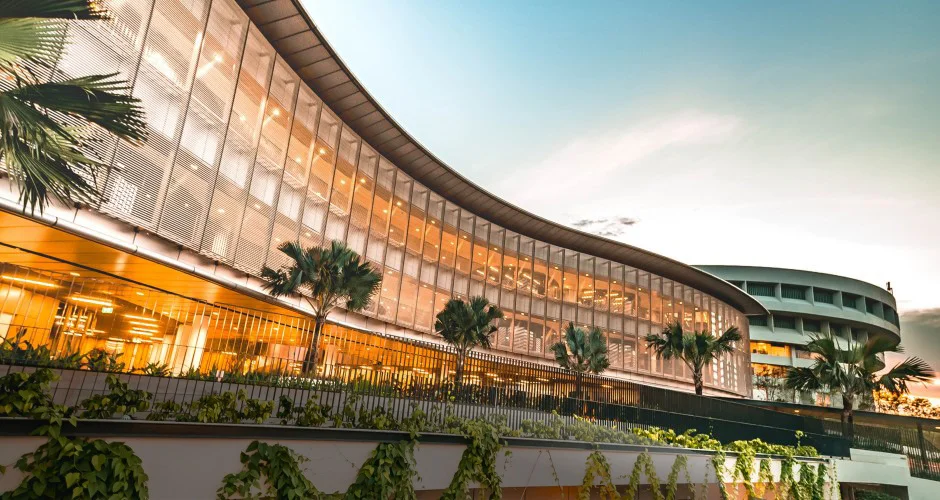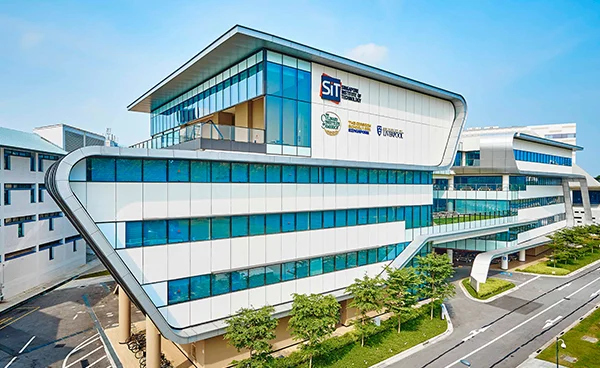 The world we see nowadays is built by human’s knowledge in science. Without science, there would be no great inventions and you would not be reading this article from your computer or your phone screen.
The world we see nowadays is built by human’s knowledge in science. Without science, there would be no great inventions and you would not be reading this article from your computer or your phone screen.
Read on to find out more about studying Applied and Pure Sciences and what it can offer you.
Everything you need to know about Applied and Pure Sciences.
What is Applied and Pure Sciences all about?
Applied Science is used to develop practical application by applying existing scientific knowledge and is more related to engineering and technology.
Pure Science focuses on theories and predictions to understand the world of nature and to explain phenomenon in the natural world.
It is also known as ‘Basic Science’ or ‘Natural Science’ which includes Chemistry, Biology and Physics.
Applied Sciences are often performed outside a laboratory and Pure Sciences are often performed in a laboratory and it does not matter how the theories can be applied.
What are the major fields in Applied and Pure Sciences?

There are many fields in Applied and Pure Sciences like Nanotechnology, Medical Science, Nanotechnology, Forensic, Environmental Science, Kinematics, Chemistry, Biology, Physics, etc.
Here are some major fields that you might be quite familiar:
Biology
The term biology is derived from Greek word, which has the meaning of “study of life".
It is the natural science that studies life and living organisms, like us, human.
The topics in biology includes physical structure, molecular interactions, physical mechanisms, development and evolution.
I know it sounds complicated but I’m sure you learned about living things and non living things in primary school. Yea, it’s biology.
Physics
“Physics”, derived from Greek too, means “knowledge of nature”.
It is the natural science that studies matter, it's motion and behaviour through space and time, and that studies the related entities of energy and force. Physics is one of the most fundamental scientific disciplines and its main goal is to understand how the universe behaves.
Advances in physics often lead to new technologies and the development of new products. If you’re keen to be the next Stephen Hawking, this is the field that you should go for.
Chemistry
Chemistry is more than mixing unknown liquids in the lab and causing an explosion, it is the scientific discipline involved with elements and compounds composed of atoms, molecules and ions.
A chemist must know their composition, structure, properties, behaviour and the changes they undergo during a reaction with other substances.
This is to ensure it doesn’t cause an explosion like what you would see in a tv show.
Maybe they do, but trust me, the chemists know what’s in their test tube.
Environmental Science
Environmental Science is an interdisciplinary academic field that integrates physical, biological and information sciences to the study of the environment, and the solution of environmental problems.
If you are an environmental scientist, you will be working on subjects like the understanding of earth processes, natural resource management, and the effects of global climate change.
You want to save the earth? Be an environmental scientist!
Medical Science
Medical Science is a course for future doctors. It explains how the human body works by covering many subjects including biology which is generally divided into areas of specialisation such as anatomy, physiology and pathology
Other areas include biochemistry, microbiology, molecular biology and genetics.
Beside these subjects, students will also need in-depth understanding in variety of areas such as biomedical science, public health, clinical medicine and medical education.
What are the important skills I need in this field?

Here are some of the skills that you’ll find important in the field of Applied and Pure Science:
Numerical skills
As many courses in Applied and Pure Sciences will involve some calculations, numerical skills are one of the most essential skills needed in this field.
An Applied and Pure Scientist will deal with mathematical operations like addition, subtraction, multiplication and division most of the time and there will also be a lot of equations which are needed in the process of solving problems.
Problem solving
What do you think scientists do? They invent ground-breaking stuff to solve our problems!
It’s no doubt that problem solving skills are essential in this field whether you are studying Applied Science or Pure Science.
Problem solving skills are required by both Applied Scientist and Pure Scientist to invent new and revolutionary products and technology to save and improve the world we have today.
Oral and written communication skills
Being in any industry, clear communication is the key to being productive in the workplace.
It is important that one has effective oral and written communication skills to avoid any miscommunication and increase productivity in the workplace.
Furthermore, an Applied and Pure Scientist will probably have to present their new findings and inventions, so, oral and written communication skills are really important.
What are the entry requirements and qualifications?
The entry requirements for different types of qualification are different, we have listed the general entry requirements for universities in Singapore according to the types of qualification:
Diploma
- IELTS - 5.5 (with writing sub band no less than 5.0)
- TOEFL (Paper-based) - 525-550
- TOEFL iBT - 69-79
- GCE O-Level English- C6
- Pearson Test for English (PTE-A) -46
- An equivalent English language qualification
Bachelor’s Degree
- EL119 - C6
- IELTS - 6.0 - 6.5 (no component lower than 6.0)
- MUET - 200
- TOEFL (paper based) - 525- 580
- TOEFL iBT - 80-93
- Pearson Test for English (PTE-A) -57
- A minimum of 12 years of formal education with good passes
- An equivalent English language qualification
Master’s Degree
- IELTS - 6.0 - 6.5 (no component lower than 6.0)
- MUET - 200
- TOEFL (paper based) - 580
- TOEFL iBT - 85-93
- Pearson Test for English (PTE-A) -57
- A Bachelor’s degree with honours or equivalent
- An equivalent English language qualification
PhD
- IELTS - 6.0
- TOEFL (paper based) - 580
- TOEFL iBT -990
- Pearson Test for English (PTE-A) -57
- A Bachelor’s degree with honours/Master degree or equivalent
- An equivalent English language qualification
How long will I be studying in this programme?
The duration of studying Applied and Pure Sciences are different for different study levels and are listed in the table below:
| Level of Study | Duration |
| Diploma | 6 months - 1 year |
| Bachelor’s Degree | 2- 4 years |
| Master’s Degree | 1 year - 2 years |
| PhD |
3 years - 5 years |
How much does it cost to study Applied and Pure Science?
There are a few universities in Singapore that offer an Applied and Pure Sciences course and the prices may vary according to the types of programme and types of institution.
We have listed the estimated tuition fees but do check with the universities to know more about the cost of the programmes.
| Programme | Estimated Fees (MYR) | Estimated Fees (USD) |
| Diploma | RM 24,000 - RM 30,000 | 5600 - 7100 |
| Bachelor’s Degree | RM 70,000 - RM 138,000 | 16500 - 326000 |
| Master’s Degree | RM 60,000 - RM 136,000 | 14200 - 32200 |
| PhD |
RM 60,000 - RM250,000 |
14200 - 59170 |
What are the job opportunities?
Applied and Pure Sciences have a wide career prospect in Singapore and Malaysia.
For a Pure Science graduate, they can work for roles such as scientists, researchers or academicians whereas an Applied Science graduate can apply their knowledge on practical jobs.
We have listed out some jobs for Applied and Pure Science graduates here:
- Biologist
- Biotechnologist
- Chemist
- Dentist
- Software Engineer
- Mechanical Engineer
- Civil Engineer
- Environmental Scientist
- Geologist
- Nurse
- Occupational Therapist
- Pharmacist
- Physiotherapist
- Veterinary Surgeon
Which recognised universities offer Applied and Pure Sciences in Singapore?
There are many private and public institutions offering Applied and Pure Science in Singapore.
These are a few public and private institutions in Singapore where you can study Applied and Pure Science:
- National University of Singapore
- Nanyang Technological University
- James Cook University
- Kaplan Higher Education Academy
- Singapore Management University
- Management Development Institute of Singapore
- PBS Academy
- Singapore Institute of Technology
- Informatics Academy
- Technische Universitat Munchen Asia
National University of Singapore
The National University of Singapore (NUS) is ranked 23rd in the world.
This institution offers single-degree, masters, doctoral and graduate diploma programs conducted via faculties like the Arts and Social Sciences, Business, Computing, etc.
Today, it is offering up to 25 Science Majors and a double major programme. Some primary majors offered by the Faculty of Science are Chemistry, Computational Biology, Data Science and Environmental Studies.
Nanyang Technological University

Source: Nanyang Technological University
In the Times Higher Education World University Rankings 2018-2019, Nanyang Technological University had gained a ranking of 51 among other universities around the world.
With a reputation as one of the leading science, technology and research universities, the university itself is well known for their eco-friendly building and grass roof to blend in with their garden campus setting and keep the ambient temperature low.
James Cook University
James Cook University Singapore is a branch of James Cook University, based in Townsville, Australia, which is ranked in the top 2% of universities in the world.
The Singapore campus of James Cook University is located at Sims Drive and it provides students with access to a full range of facilities and services to support their learning.
It also provides the opportunity for students to study in Singapore and in Australia and yet still remain as Singapore based students paying their fees in Singapore currency.
Kaplan Learning Institute
Kaplan is one of the world’s largest and most diverse education providers with over one million students globally.
Headquartered in US, Kaplan is part of Graham Holdings (formerly The Washington Post Company) and is its largest subsidiary.
Being a platinum ACCA approved learning partner, Kaplan Learning Institute has been consistently producing ACCA Prize Winners and thousands of students.
Singapore Management University
Singapore Management University is ranked 11th among other specialist universities worldwide and is rated 5 stars by QS World University Rankings.
Today, SMU comprises of six schools, which are School of Business, School of Accountancy, School of Economics, School of Information System, School of Law and School of Social Sciences.
It offers a wide range of Bachelor’s, Master’s and PhD degree programmes in the disciplinary areas associated with the six schools.
Management Development Institute of Singapore
Founded in 1956, Management Development Institute of Singapore (MDIS) offers internationally-accredited course in Business and Management, Engineering, Health and Nursing, etc.,
This institution is in collaboration with renowned universities in the United Kingdom and the United States of America.
Apart from the main Singapore campus, MDIS also has international campuses in Tashkent, Uzbekistan, as well as in Johor, Malaysia.
PBS Academy
Once known as Singapore’s Productivity and Standards Board, PSB Academy is known today as “The Future Academy”, with an approach to education that focuses on what really matters: performance in the New Economy.
In 2019, the Academy was conferred “Best Educational Institute - Singapore” by APAC Insider and earned 2 consecutive SBR National Business Awards in 2017/18 in the Education category for outstanding work in the region.
Singapore Institute of Technology

Source: Singapore Institute of Technology
Singapore Institute of Technology was established in May 2009 by Dr Ng Eng Hen, and is Singapore’s fifth university. Singapore Institute of Technology (SIT) is Singapore’s university of applied learning.
SIT's vision is to be a leader in innovative learning by integrating learning, industry and community. Its mission is to nurture and develop individuals who build on their interests and talents to impact society in meaningful ways.
Informatics Academy
Established in 1983 to address Asia’s need for IT expertise, Informatics Academy has transformed through the years into a centre of excellence in higher learning.
By offering diplomas and degrees in various disciplines, they equip their students with relevant skills and knowledge to be leaders in the marketplace.
Based in the National Library Building at Victoria Street, it makes commuting easy for students and is fully equipped with the latest teaching equipment.
Technische Universitat Munchen Asia
TUM Asia commenced operations in Singapore in 2002 as a branch campus subsidiary of the Technische Universität München.
Through its groundbreaking collaboration with Singapore’s two leading universities, TUM has pioneered globalization of German universities with the presence of TUM Asia in partnership with National University of Singapore (NUS) and Nanyang Technological University (NTU) to offer post-graduate programmes.
 +60173309581
+60173309581








